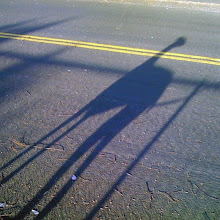The Crash Course

We know David Mamet is fond of stacking the deck, given he's buddy-buddy with Ricky Jay, given his plot-twisters like House of Games and The Spanish Prisoner. He stacks it nowhere more than in his 1992 play Oleanna, which is currently being revived at the Mark Taper in Los Angeles. A two-hander (starring the equally compelling Julia Stiles and Bill Pullman) about a college professor and the student who seems intent on ruining him, the play, when written, became a litmus test for a post Clarence Thomas-Anita Hill he said/she said world. Carol is a struggling college student, not even sure the professor believes she should be in college. John is a professor about to get tenure, about to buy a bigger house, about himself more than anything. He can write a book calling the university process for all students hazing and still hope the university will promote him--as his book jacket has it, he is a man of "polite skepticism."
Mamet, however, is an impolite cynic. While John finally opts to try to help Carol--mostly, it seems so he can prove to himself he can really teach anyone, even a student who says she doesn't understand his book, he's that full of himself--Carol finds a very different path to get around her lack of understanding. Oleanna is sort of like a word noir, eventually, and whoever holds the language asks the questions. That means John's hand on Carol's shoulder to comfort her is suddenly something much more. And comfort is the least of anyone's concerns.
John relishes reason so he believes he can use it to find fault with the university system while profiting from it. Carol, meanwhile, finds strength in her "group," which, given the language/jargon she suddenly finds accessbile, seems to be composed of feminists that might make Andrea Dworkin seem moderate (it's completely a straw woman argument, but what else do you expect from Mamet?). The rest of the play is reason v. fundamentalism, and as we know, reason never stands a chance there. Check either 9/11 or eight years of Bush for evidence, if you'd like. The escalating violence as the play continues simply stresses Mamet's belief language only goes so far--it's at best the patter that gets us through the cons of our lives, most often just veneer that keeps society social, too often exposed for how little it means.
The current Taper production features what almost seems an off note, as the blinds to John's office hyper-dramatically rise and fall between acts as a clearly taped and heavily mechanical sound effect plays. What is it that we view we see? What is it that we see we know? That's what the blinds ask, sort of a chorus. As for the actual actors, Pullman makes John just enough pedantic but just enough insecure, full of pauses and tics. It's easy to believe he's a man who is uncertain of his standing enough that he puffs himself up to make up for it. Stiles has the tougher role, but essays it well. In the first act there's enough defiance in her confusion that's it's not totally surprising when she suddenly grows strong when accepted by her "group." And while the staging doesn't play up her attractiveness, her good looks are sort of crucial--it would be a very different play if people might question whether John might sexual harass the student. That might even been Mamet's ultimate insider joke--the only way Carol can prove herself to the patriarchy is to make them be men first and foremost.
For Mamet, it's not just Men are from Mars and Women are from Venus, it's that all humankind has its head up Uranus.
Labels: language is a virus from outerspace and I'm one sick puppy, Mamet


2 Comments:
But did you like it? BTW, I'm taking your brilliant "head up Uranus" & running with it.
Oh, great, now my brilliant head is up Uranus.
I can never pass on a seventh planet joke. My immaturity keeps me young.
I did like it, yes, but like is the wrong word for a play like "Oleanna."
Post a Comment
<< Home